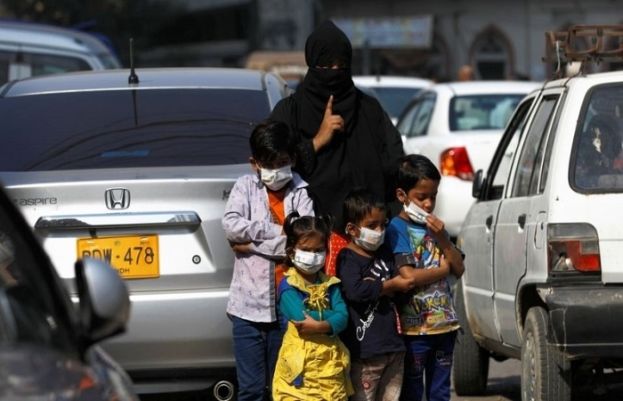
In a statement, the NIH said that the Ministry of National Health Services, Regulation and Coordination (NHSRC), the National Command and Operation Centre (NCOC) and the provincial departments were vigilantly keeping an eye on Omicron cases in Pakistan ever since it was designated a variant of concern by the World Health Organisation (WHO).
"The first case of the Omicron variant of Covid-19 was reported on December 13 in Karachi," the statement said.
"As of December 27, a total of 75 Omicron cases have been confirmed; 33 in Karachi, 17 in Islamabad and 13 in Lahore," the statement said, adding that the remaining 12 cases were associated with international travel. The NIH did not provide any further details.
"The relevant authorities have isolated the patients and initiated contract tracing in order to control the spread of the variant," the NIH said.
Vaccination and following standard operating procedures (SOPs) continue to be our best defence against Covid-19 despite the mutations being reported, the statement added.
"All government approved Covid-19 vaccines available in Pakistan remain highly effective at preventing severe disease and hospitalisation. The government urges everyone to get both doses of the Covid-19 vaccine as well as the booster dose as per the eligibility criteria and process," the statement said.
Pakistan reported its first suspected case of the Omicron variant on December 8. Following its gene-sequencing, Aga Khan University Hospital confirmed it was the new variant on Dec 13.
On Dec 25, Islamabad had confirmed its first case. Islamabad District Health Officer (DHO) Zaeem Zia said that the case was detected in a 47-year-old male, adding that he was working in Islamabad and had travelled out of city for work-related purposes. The patient had no history of travelling abroad, he said.
'Inevitable arrival'
Last month, Federal Planning Minister Asad Umar and Special Assistant to the Prime Minister on Health Dr Faisal Sultan had sounded the alarm, saying that the arrival of the Omicron variant was inevitable and a matter of time.
"This [strain] has to spread in the whole world as we saw before that when a variant comes, the world is so interconnected that it is impossible to stop it," Umar had said, adding that vaccination was the most logical solution to curb the threat.
Pakistan had placed a complete ban on November 27 on travel from six south African countries — South Africa, Lesotho, Eswatini, Mozambique, Botswana and Namibia — and Hong Kong in the wake of the variant's discovery.
This travel ban was later extended to nine more countries — Croatia, Hungary, Netherlands, Ukraine, Ireland, Slovenia, Vietnam, Poland and Zimbabwe.
Additionally, the National Command and Operating Centre placed 13 countries – United States, United Kingdom, Germany, Trinidad and Tobago, Azerbaijan, Mexico, Sri Lanka, Russia, Thailand, France, Austria, Afghanistan and Turkey – in category B.
All passengers from these countries need to be fully vaccinated, while everyone above the age of six must possess a negative PCR test report issued not more than 48 hours before boarding.
Omicron has been classified by the World Health Organisation as a "highly transmissible" variant — the same category that includes the predominant Delta variant.
from latest-news - SUCH TV https://ift.tt/3FD1bOr


0 Comments